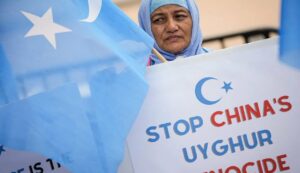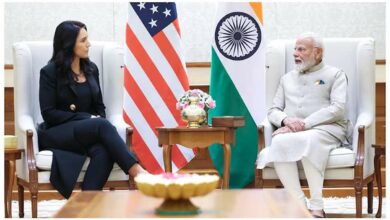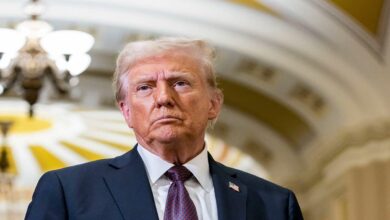Uighur activist condemns China’s recent announcement about completing the deepest vertical well in Asia
Washington, DC: Campaign for Uyghurs Executive Director Rushan Abbas has denounced China’s recent statement that it had completed the world’s deepest vertical well, which is situated in Xinjiang’s Tarim Basin.
Abbas emphasized the exploitation of the Uyghur lands and explained how the drilling operation was a component of the Chinese Communist Party’s (CCP) larger colonial objective.

“As it continues its genocide against the Uyghur people, the CCP announced that it has drilled the deepest vertical well in the Uyghur homeland, a new frontier for oil and gas resources,” Rushan Abbas said in a post on X. Control and subjugation are the driving forces behind this kind of colonialism, which abuses the land and the people who have inhabited it for millennia.
AsiaNews claimed that the China National Petroleum Corporation (CNPC) has successfully drilled Asia’s deepest vertical well, which prompted Rushan’s response. The well is said to have reached a depth of 10,910 meters, making it the second-deepest vertical well on land in the world. It is situated in the dry Tarim Basin in the province of Xinjiang.
The Tarim Basin has already produced more than 300 wells, each dug more than 8,000 meters, according to AsiaNews, highlighting the oil field’s important contribution to the development of technology for ultra-deep oil and gas exploration. According to the article, all of this is taking place in the Xinjiang region, which is home to the Muslim Uyghur community, who are still subjected to Chinese persecution. According to AsiaNews, China’s growing oil sector in the area is a potent instrument in the continuing sinicization process. In addition, state-owned mining firms have been accused of using forced Uyghur labor, often under the pretense of “poverty alleviation” programs.
Significant worldwide attention has been paid to the issue involving China’s Uyghur community, which is mostly concentrated in Xinjiang. Numerous human rights violations, including forced labor, arbitrary detentions in alleged “re-education” camps, and monitoring, are reported. According to the Chinese government, these actions are required to counter extremism and advance stability. However, detractors characterize these measures as systematic persecution meant to eradicate Uyghur culture, language, and religion. These detractors include a number of states and human rights organizations. Mass brainwashing, forced sterilizations, and genocide accusations have heightened discussions over China’s treatment of its minority population, leading to international censure and penalties.





